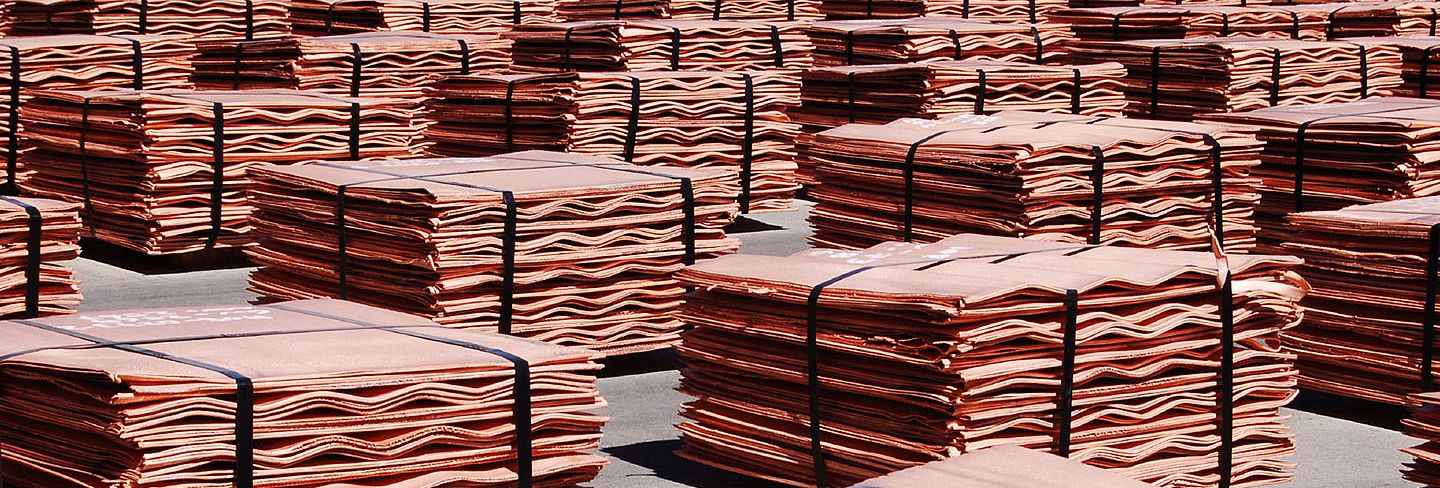Exploring the Diverse Applications of Copper Products in Modern Industries
Copper items have established themselves as indispensable elements throughout a myriad of contemporary industries, largely because of their impressive conductivity, malleability, and resistance to rust. From enhancing the performance of electrical systems to playing a crucial duty in sustainable energy modern technologies, the adaptability of copper is obvious. Furthermore, its recyclability settings it as a sustainable selection in manufacturing and electronic devices. As markets significantly prioritize technology and sustainability, the varied applications of copper warrant a closer assessment, particularly concerning their possible influence on future ecological methods and technological improvements.
Electrical Applications of Copper
Copper is a necessary material in the electrical market, representing approximately 60% of the complete demand for non-ferrous steels around the world - Copper Products. Its exceptional electric conductivity, which is virtually two times that of light weight aluminum, makes it the preferred option for a vast array of electric applications. From wiring systems in household and business structures to high-voltage power transmission lines, copper guarantees effectiveness and integrity in power shipment
Along with circuitry, copper is important to the manufacturing of electric components such as electric motors, transformers, and generators. These parts utilize copper's thermal conductivity and malleability, necessary for warmth dissipation and efficient performance. Furthermore, copper's resistance to rust improves the life-span and longevity of electric systems, making it a cost-efficient solution in the lengthy term.
The development of renewable resource sources, such as solar and wind power, has actually even more boosted the need for copper in electric applications. As markets shift in the direction of lasting energy remedies, copper's function becomes much more crucial. Overall, the versatility and efficiency qualities of copper solidify its condition as a cornerstone product within the electric field, driving technology and effectiveness across numerous applications.
Plumbing and Piping Solutions
In modern-day plumbing systems, the choice of materials dramatically impacts both performance and longevity. Copper has arised as a favored option as a result of its special properties, including corrosion resistance and antimicrobial features. These features ensure that copper piping remains sturdy and secure for moving safe and clean water, an essential factor to consider in property and business applications.
One of the vital benefits of copper in plumbing is its ability to hold up against high temperature levels and pressures, making it suitable for a variety of applications, from warm water systems to home heating and cooling networks. In addition, copper's flexibility permits simpler installment in complicated piping layouts, minimizing the risk of leakages and failures.
Another noteworthy advantage is copper's lengthy life-span, commonly exceeding half a century with correct maintenance. This long life not only reduces substitute costs however also adds to sustainable methods by lowering waste. Additionally, copper's recyclability lines up with contemporary ecological standards, advertising a circular economy within the plumbing industry.
Copper in Renewable Energy
The convenience of copper extends beyond pipes applications, playing an essential role in the renewable resource industry. Its outstanding electrical and thermal conductivity makes it a crucial material in the production and circulation of renewable resource sources, especially solar and wind power. In photovoltaic panels, copper is used in photovoltaic cells and electrical wiring, helping with efficient power conversion and transmission. Its resistance to deterioration ensures durable performance, which is important for taking full advantage of energy output in time.

Furthermore, as the international need for electric vehicles (EVs) boosts, copper's function in battery systems and charging facilities comes to be much more substantial. The product's ability to conduct electrical energy successfully is essential to the performance of EV batteries, enhancing variety and billing speed.
Copper's Function in Electronics
Electronics producing depends heavily on copper's extraordinary properties, particularly its high electric conductivity and thermal effectiveness. These features make copper a suitable option for a vast array of digital elements, including adapters, motherboard, and wiring. The steel's capability to effectively send electric signals makes sure minimal energy loss, which is crucial in high-performance digital gadgets.
Furthermore, copper's thermal conductivity plays a significant function in warmth dissipation, safeguarding delicate components from overheating. This is especially important in modern-day electronic devices, where portable designs cause boosted warmth generation. Copper is also preferred for its malleability and ductility, allowing it to be quickly formed into elaborate layouts that meet the demands of sophisticated digital applications.
With the rise of consumer electronic devices, telecoms, and electric cars, the need for copper in the electronics market proceeds to grow. Thus, copper continues to be a foundation product in the ever-expanding field of electronics.
Ingenious Utilizes in Manufacturing

One significant application is in additive manufacturing, where copper-based products are employed in 3D printing processes. This permits for the creation of complicated geometries and light-weight elements, particularly in the aerospace and automotive industries. Furthermore, copper's thermal conductivity makes it an optimal selection for heat exchangers, enhancing performance in commercial cooling systems.
Moreover, the increase of clever production has seen the consolidation of copper in IoT tools, where its conductive abilities sustain sophisticated sensing innovations. In the realm of eco-friendly power, copper is essential in the manufacturing of photovoltaic panels and wind turbines, helping with more efficient energy conversion and distribution.
As industries pursue sustainability and advancement, copper's convenience and performance proceed to place it as a vital product, driving improvements in production and adding to the development of smarter, more efficient items.
Verdict
The indispensable function of copper in renewable energy and its necessary function in electronic devices underscore its relevance in progressing lasting practices. Jointly, these applications highlight copper's vital payment to find out this here technological development and commercial effectiveness in modern society.
From improving the efficiency of electrical systems to playing a crucial function in sustainable energy innovations, the convenience of copper is obvious. As industries significantly prioritize innovation and sustainability, the varied applications of copper warrant a closer exam, particularly regarding their potential effect on future environmental methods and technical advancements.
The development of eco-friendly energy sources, such as solar and wind power, has additionally boosted the demand for copper in electric applications. On the whole, the convenience and efficiency qualities of copper solidify its status as a cornerstone product within the electric field, driving innovation and effectiveness across numerous applications.
The adaptability of copper prolongs beyond pipes applications, playing an important duty in the sustainable power market.